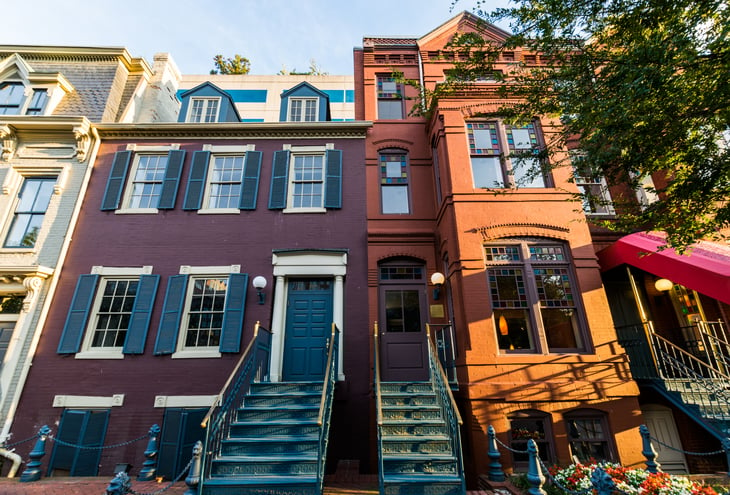
The housing market is cooling from coast to coast. As mortgage rates rise, many potential homebuyers are being squeezed out of the market, no longer able to afford the higher costs.
Now that more folks are throwing in the towel on owning a new home, prices are drifting lower and — in some markets — sales are declining precipitously.
Recently, RE/MAX issued its National Housing Report for May, noting that sales were down year-over-year in the 51 metro areas it surveys. Inventory levels also grew for a second straight month.
In the following markets, the number of closed transactions dropped at least 16% year-over-year.
5. Washington, D.C.

Year-over-year decline in closed transactions from May 2021 to May 2022: From 10,391 to 8,673 — 16.5%
This metro area includes:
- Washington, D.C.
- Arlington, Virginia
- Alexandria, Virginia
4. Trenton, New Jersey

Year-over-year decline in closed transactions from May 2021 to May 2022: From 410 to 332 — 19%
This metro area includes:
- Trenton
- Princeton
3. San Diego

Year-over-year decline in closed transactions from May 2021 to May 2022: From 3,591 to 2,858 — 20.4%
This metro area includes:
- San Diego
- Chula Vista
- Carlsbad
2. Miami

Year-over-year decline in closed transactions from May 2021 to May 2022: From 11,392 to 8,835 — 22.4%
This metro area includes:
- Miami
- Fort Lauderdale
- Pompano Beach
1. Los Angeles

Year-over-year decline in closed transactions from May 2021 to May 2022: From 9,991 to 7,553 — 24.4%
This metro area includes:
- Los Angeles
- Long Beach
- Anaheim




Add a Comment
Our Policy: We welcome relevant and respectful comments in order to foster healthy and informative discussions. All other comments may be removed. Comments with links are automatically held for moderation.